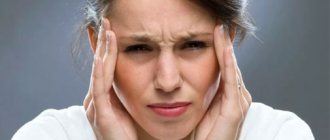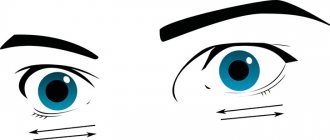Recognizing the first signs of a heart attack can be difficult due to their similarity to other heart diseases (angina pectoris, acute heart failure).
A heart attack can occur suddenly and at any age. However, doctors say that men over 45 and women over 55 are at greater risk. In this age group, smoking and obesity increase the likelihood of heart muscle blockage. Also, the cause of the development of pathology can be a sedentary lifestyle and untreated chronic diseases.
What is a heart attack?
A heart attack is a pathological condition in which the heart muscle is blocked by a spasm or blood clot, resulting in disruption of blood supply. Heart attack and heart attack are the same thing.
How to recognize a heart attack by its signs? The attack can be painless or with characteristic severe symptoms, which include:
- mild, moderate or severe (unbearable) pain in the chest area, often radiating to other parts of the body;
- feeling of panic, fear, melancholy, anxiety, inexplicable restlessness;
- pain in the neck, lower and upper extremities;
- nausea, vomiting;
- dizziness, headache;
- breathing problems;
- loss of consciousness.
Most heart attacks involve discomfort in the center of the chest that lasts more than a few minutes. Unpleasant sensations can cause a feeling of tightness or pressure, and can also be accompanied by pain of a cutting, piercing, aching or stabbing nature. If there is no one nearby who can provide first aid until the ambulance arrives, it is necessary to provide self-help for a heart attack. Don’t panic, take a sitting or lying position, try to control your breathing, and if possible, provide access to fresh air (open a window, door). Changing the position does not relieve pain; try not to make unnecessary movements.
Why do many people not feel the symptoms of a heart attack?
Symptoms of a heart attack may go unnoticed and do not always include chest pain, shortness of breath, and fear. Some people say that during this time they experienced sensations similar to an upset stomach and other symptoms of ill health (pain in the neck or shoulder, difficulty breathing, weakness, dizziness). In these cases, the diagnosis was confirmed only after a comprehensive examination of the patient.
First aid for heart failure should be provided to a person immediately after the onset of alarm signals:
- intense pain in the chest area;
- discomfort;
- sudden shortness of breath;
- weaknesses;
- feeling of squeezing.
The American Heart Association (AHA) lists cold sweats, nausea, and dizziness as additional signs of an attack. Some heart attacks are sudden and intense. But most start slowly, usually with mild pain or discomfort. Listen to your body and call an ambulance immediately if you feel unwell, especially along with pain in the heart area.
Cardiomyopathy
Cardiomyopathy does not occur due to myocardial malnutrition, tumor or inflammation. This diagnosis is largely collective and belongs to the group of heart diseases of unknown origin. It manifests itself as dystrophic changes in cardiomyocytes (heart cells) and against their background the performance of the cardiac ventricles is often impaired.
Understanding how to identify heart pain in cardiomyopathy is not easy because the disease changes as it progresses. It will not be possible to relieve discomfort by taking Nitroglycerin, and initially the loads do not in any way affect the intensity of the manifestations of the disease.
In the early stages, patients have ambiguous symptoms of heart pain, namely:
- the nature of the pain can be anything;
- unpleasant sensations are transmitted to various places;
- The pain is not severe, but it does not stop.
As cardiomyomaty develops, the heart does not hurt so often, but the disease begins to manifest itself in attacks, especially after physical exertion. The resulting unpleasant sensations are sometimes relieved by Nitroglycerin. At an advanced stage, it is easier to answer what exactly hurts, since the painful focus has already been formed and has a specific localization.
How to diagnose heart problems?
Heart problems are diagnosed by rare, periodically or constantly recurring unpleasant sensations that occur in the heart area. They are often accompanied by accompanying signs of poor health: lethargy, weakness, headache, lack of air, rapid pulse, swelling in different parts of the body. Taken together, this may indicate markers of many diseases of the cardiovascular system. According to the World Health Organization, more than 80% of deaths occur due to the development of cardiovascular diseases in men and women.
If at least two or three symptoms occur over a certain period of time, you must contact a therapist or cardiologist to determine the cause. First of all, people who are at risk should seek medical help: these include those who have been diagnosed with problems with blood vessels, weight, metabolism, and also with the respiratory system.
Often myocardial infarction and other heart diseases are associated with a person’s delay in seeing a doctor due to the repetition of the same symptoms, which periodically disappear. Unhealthy lifestyle and bad habits increase your risk of heart problems, especially heart attack. For example, smokers are more susceptible to types of heart attacks than people who do not smoke.
Chest pain
Chest pain can be associated not only with the heart, but also with the musculoskeletal system, as well as with the digestive organs, abdominal cavity or lungs. Coronary artery disease is the heart disease most commonly associated with chest pain.
How can you tell if chest pain is caused by heart disease?
If you are experiencing chest pain, it is important to understand what may be causing it. In coronary heart disease, obstruction of the artery supplying oxygen to the myocardium leads to insufficient oxygen supply to the muscle layer. Typically this pain syndrome occurs during exercise. Typically, chest pain caused by heart disease worsens during exercise, and rest partially relieves the symptoms.
Heart pain is felt in the central part of the chest or is through. The patient is not able to localize the pain by pointing to a specific area, unlike the situation when there is musculoskeletal pain.
Heart pain can also radiate to the back, neck and shoulders. By its nature, it feels like squeezing and squeezing.
In the case of a myocardial infarction, symptoms may also appear during rest and chest pain may begin, for example, at night. Chest pain is a typical symptom of myocardial infarction. The main symptoms also include shortness of breath, general weakness, heartburn or pain in the upper abdomen.
Chest pain - when to see a doctor?
If chest pain occurs during exercise, it is imperative to determine its cause. If the symptom subsides a few minutes after the end of the exercise and does not recur during rest, the examination can be done within the next few weeks. In this situation, you can contact your family doctor or cardiologist for examination.
If the pain occurs at rest and the clinical picture is consistent with the description of myocardial infarction, you should immediately seek help by calling the general Finnish emergency number. Primary intensive care will be provided to the patient immediately at home, as soon as the ambulance arrives at the scene. The emergency team will perform an electrocardiogram (ECG) on the patient.
If necessary, if the patient is in the Pirkanmaa region, the team will contact the on-duty cardiologist at the Tays Cardiac Clinic. After first aid, the patient will be taken to the Tays Heart Clinic for treatment. Treatment for myocardial infarction involves immediate dilatation of the narrowed coronary artery using balloon angioplasty.
In all cases, it is important to determine the cause of chest pain.
Why might doctors miss the first symptoms of a heart attack?
Doctors cannot miss the first symptoms of a heart attack. Ignoring poor health and refusing to visit a doctor can lead to complications or death, especially when a person has chronic diseases.
The causes of a heart attack can vary. It is often caused by the simultaneous action of several factors (alcoholism, stress, autoimmune disorders, thyroid pathologies, hereditary diseases).
Does the heart recover after a heart attack?
After a heart attack, it is possible to normalize the functioning of the heart, but it is impossible to restore cells that have lost their functionality. This also applies to cases where a person is provided with timely first aid for a heart attack. However, scientists talk about the possibility of restoring dead heart tissue using regenerative medicine. They plan to achieve this thanks to stem cells that are injected into the heart area, through which the process of regeneration of damaged cardiac tissue can be started.
There are two types of complications that can occur after a heart attack: those that occur almost immediately and those that occur afterward (in the following days, a week, or even a month later).
Complications that occur immediately after a heart attack include:
- arrhythmia - the heart beats irregularly, too fast or too slow;
- cardiogenic shock - a person’s blood pressure suddenly drops, as a result of which the heart cannot supply the body with enough blood to function properly;
- hypoxemia - oxygen levels in the blood become too low;
- pulmonary edema—fluid accumulates in and around the lungs;
- deep vein thrombosis - blood clots form in the deep veins of the legs and pelvis, which either block or interrupt blood flow in the vein;
- myocardial rupture - a heart attack damages the heart wall, causing it to rupture.
- Ventricular aneurysm - the ventricle forms a bulge.
Complications that occur after a heart attack include:
- aneurysm—scar tissue accumulates on the damaged heart wall, leading to blood clots, low blood pressure, and abnormal heart rhythms.
- angina pectoris - not enough oxygen reaches the heart, which causes chest pain;
- congestive heart failure - the heart may beat very weakly, causing the person to feel exhausted and experience shortness of breath;
- swelling - fluid begins to accumulate in the ankle area;
- loss of erectile function, loss of libido;
- pericarditis is an inflammation of the lining of the heart that causes severe chest pain.
Treatment
Depending on the diagnosis, the cardiologist prescribes a comprehensive therapeutic program that includes different treatment methods:
- Drug therapy: sedatives, tranquilizers, antidepressants.
- Traditional medicine: herbal preparations, teas, infusions, soothing baths with essential oils, special relaxing salts.
- Physiotherapy: magnetic, laser therapy, electrophoresis, massage, acupuncture, inductothermy, darsonvalization, aeroionotherapy.
- Physiotherapy.
- Psychotherapy sessions.
- Spa treatment.
- Correction of diet, diet.
If pain appears in the heart area after a strong fright, you need to give yourself first aid. First of all, if possible, you need to take a lying position on a flat surface, unfasten the top buttons on your clothes, remove all excess, which can interfere with the normal flow of oxygen into the lungs and compress the chest. After this, it is important to establish uniformity of breathing; the process should occur slowly and measuredly. It is also necessary to exclude all irritating factors and take Corvalol or valerian tincture. If the condition does not improve, you should urgently call an ambulance.
Prescribed drugs
Sedatives reduce nervous conditions, dilate coronary vessels, and help stimulate the body's production of endorphins:
- Tricardin;
- Corvalment.
Magnesium and potassium preparations restore vascular tone, neuromuscular transmission, and normalize electrolyte balance:
- Magnerot;
- Asparkam.
Tranquilizers relieve anxiety, remove the feeling of fear and panic:
- Atarax;
- Phenazepam.
The selection of medications and their dosage should only be carried out by a qualified physician.
Is all chest pain a heart attack?
Not all chest pain is a symptom of a heart attack. Sometimes during a heart attack, people may experience pain in the neck, shoulders, abdomen, or back. However, such pain can also indicate diseases of the musculoskeletal system or digestive system.
How to identify pain in the heart? It is necessary to assess their nature, frequency and location. If you have frequently recurring pain, you should definitely visit a cardiologist to establish a diagnosis (spasm of the heart muscle, tachycardia, myocarditis).
Manifestations of a heart attack
Often, every day the heart hurts due to an impending heart attack. This disease is an acute lack of nutrition (ischemia), as a result of which myocardial necrosis (infarction) develops. Usually doctors, answering the question of why the heart hurts due to a heart attack, talk about a gradual blockage of the arteries or a detached blood clot that has blocked one of the main vessels. The development of this process is influenced by atherosclerosis, excessive physical activity, constant stress, etc. Heart pain begins to appear in patients 1-2 months before the attack. However, in some cases, for example, with a broken blood clot, the disease develops at lightning speed.
Signs of heart pain before and during an attack are usually the following:
- Constrictive pain. During an attack, it is difficult to understand where and how the heart hurts, because the pain radiates to the back, upper limb, neck and jaw. They spread mainly to the left half of the body. Heart pain is accompanied by increased sweating, vomiting and constant shortness of breath.
- Heart pain due to stress. The patient may feel discomfort after prolonged physical or mental work. His heart pain goes away only after resting or taking a Nitroglycerin tablet.
- Dyspnea. It often occurs with pain in the heart, indicating an imminent attack. Shortness of breath accompanies the patient almost constantly, for example, while lying down
in bed, during meals and after exertion. Immediately before the attack, the patient’s heart troubles him at night, which is why he constantly suffers from insomnia. - Fast fatiguability. When the heart hurts before a heart attack, the patient gradually begins to feel general weakness. Ordinary actions take more strength from him than before.
- Impotence. If a man's heart hurts due to gradual blockage of the arteries that supply the heart, then he has problems with erection. It can appear 1-2 years before the attack.
- Edema. This sign is the main one for people who want to know how to identify pain in the heart. The most noticeable swelling, indicating disturbances in the functioning of the heart muscle, is in the legs.
- My heart hurts in the morning. Developing myocardial ischemia is often accompanied by this symptom. Sometimes the patient experiences high blood pressure.
- Apnea. The patient's heart may bother him at night, and this manifests itself in the form of short-term stops in breathing.
If you have any doubts, it is better to consult a doctor. He will tell you how to distinguish pain in the heart during an attack from other pathological processes and advise methods to help relieve discomfort.









